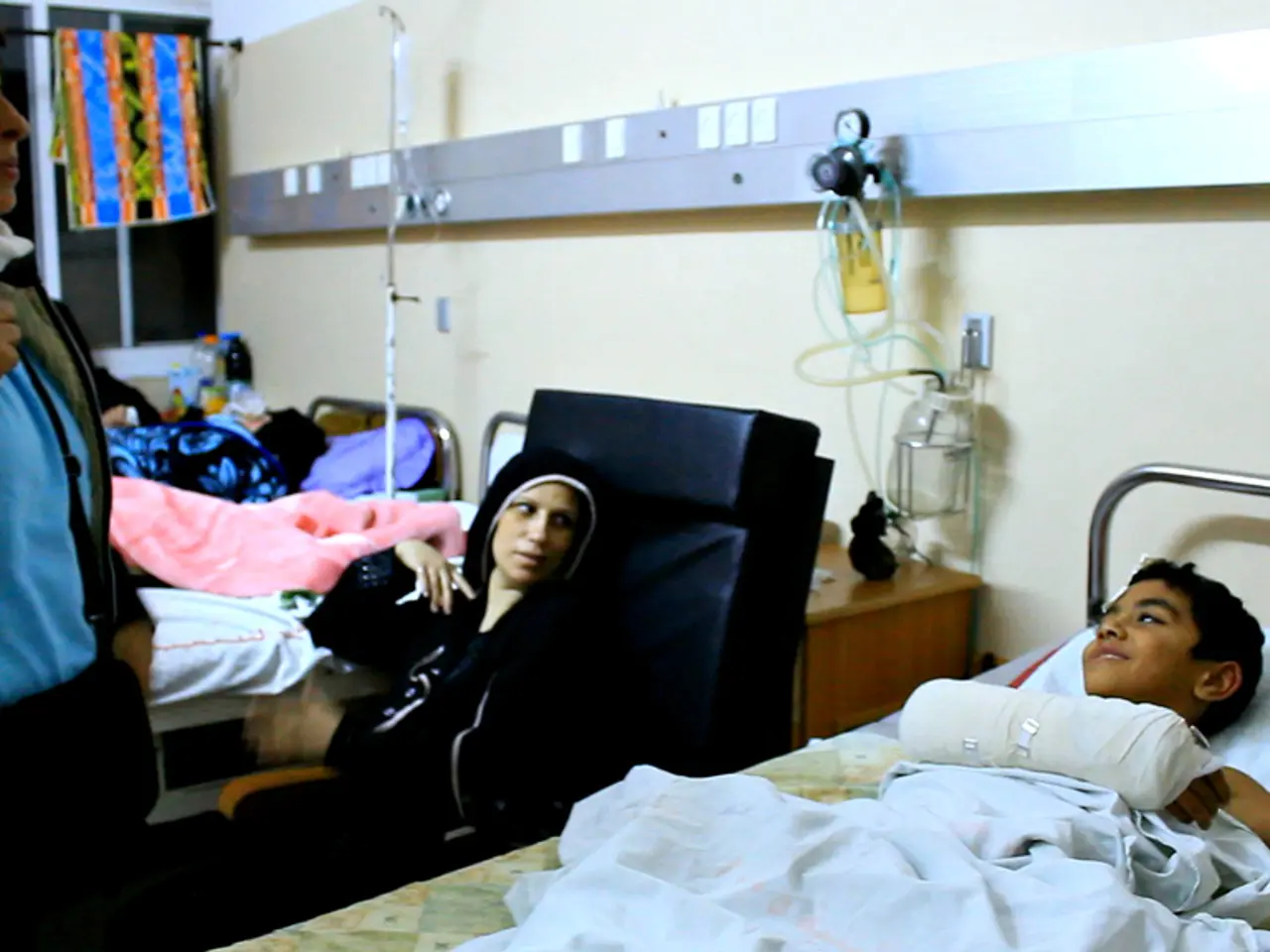Shortage of Medical School Places Strains Efforts to Alleviate Doctor Shortage
In the heart of Europe, Germany's healthcare system is renowned for its efficiency and quality. However, a critical aspect that underpins this system - medical education - faces its own set of challenges.
Each year, around 1,500 places are available for new students in private universities offering medical studies. Yet, the demand is far greater, with over 9,100 men and women from Germany pursuing their medical degrees abroad. This trend highlights the competitive nature of securing a place in a medical programme within the country.
The regions of Saxony-Anhalt, Hamburg, Hesse, and Berlin are among those with a relatively high number of medical study places. Interestingly, regions with medical faculties tend to have a higher density of doctors, suggesting a correlation between education and the availability of healthcare professionals.
However, the number of medical study places has only increased slightly from around 9,000 to 10,000 in the past nearly ten years. This stagnation, coupled with the increasing number of students pursuing medicine, has led to a growing concern about a potential shortage of doctors in the near future.
The Center for Higher Education Development (CHE) has released a study indicating this very shortage, attributing it to insufficient medical trainees. Regions like Brandenburg and Bremen currently have no state-funded medical study programs, contributing to this issue.
However, there is a glimmer of hope on the horizon for Brandenburg. The Medical University of Lusatia is scheduled to start operations in the winter semester 2026/27, offering a new state-funded medical degree program.
The cost of medical study places is a significant burden on the states, with annual running costs per person in the field of human medicine/health sciences estimated to be around 25,000 euros, according to the Federal Statistical Office.
Gender dynamics in medical education are also noteworthy. Around 65 percent of the approximately 113,000 medical students are female, with the proportion of women among first-year students even higher. The part-time quota for men in hospitals has risen from 20 to 29 percent in the last ten years, and for women from 33 to 42 percent.
Despite the increase in the number of students pursuing medicine, the shortage of doctors persists. In the academic year 2024, North Rhine-Westphalia had the most first-year students starting medical studies, with 2,334. Yet, for the winter semester 2024/25, approximately 10,000 first-year students were able to secure a place to study medicine, while about 20,000 applicants were unsuccessful.
The social association SoVD has warned that this shortage of medical study places threatens local health care in many regions. The "stickiness effect," where graduates tend to settle near their university as doctors, further complicates the distribution of healthcare professionals across the country.
Saarland and Mecklenburg-Vorpommern have the highest number of medical study places per 100,000 inhabitants, with 29 and 26 respectively. This disparity in the distribution of medical study places among the German states is another challenge that needs to be addressed to ensure a balanced healthcare system across the country.
In conclusion, while Germany's healthcare system is renowned for its efficiency and quality, its medical education landscape faces significant challenges. The growing demand for medical education, the need for a more balanced distribution of medical study places, and the increasing cost of medical study places are issues that require urgent attention. The introduction of new medical programmes, such as the one in Brandenburg, and efforts to increase the number of medical study places could help alleviate some of these challenges.








